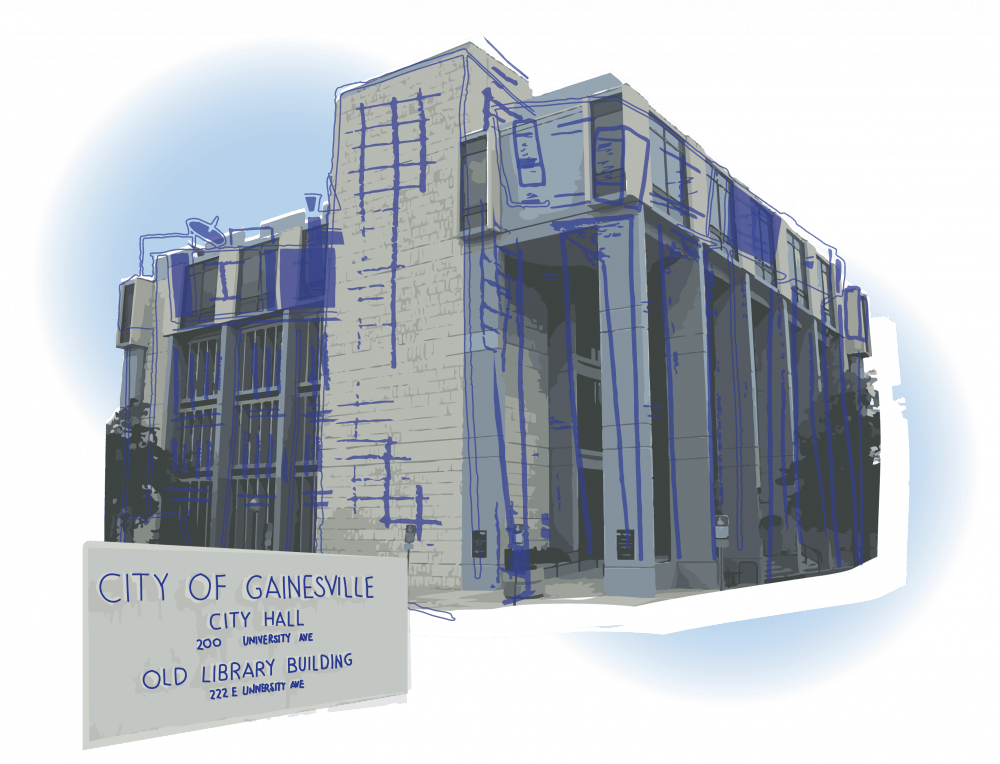The Gainesville City Commission voted to allow drinking on public property the same night it passed sweeping changes to its rental ordinances.
The commission voted to suspend its enforcement of open container restrictions during the COVID-19 pandemic in an effort to reduce the number of people who go to indoor bars or house parties. It also voted to pass new rental regulations aimed at making units safer and more energy efficient during the seven-hour meeting Thursday night.
Previously, residents could receive a citation from law enforcement for carrying open containers of alcohol on public property. Only two citations have been given for open container violations in the city over the past few years, City Manager Lee Feldman said.
City Commissioner David Arreola was the only commissioner who didn’t support the change. He said he doubts the open container change will decrease the number of house parties. He was also concerned that the wording of the order was too broad and would allow alcohol on any public outdoor space. The order suspends enforcement on “property owned or operated by the city.”
“Consumption of alcohol is also a health concern,” Arreola said.
Poe, who supported suspending the enforcement, said the changes will provide more outdoor venues for people to consume alcohol. It’s an attempt to lower the number of people crammed in indoor spaces with low circulation, places Poe said are more likely to increase the spread of the virus.
“A beer in a cup is not the end of the world for the community,” Poe said.
The commission's other vote, focused on rental regulations, was a result of a three year process, Poe said. The new ordinance requires rental properties be kept up to standards that now include proper home insulation, controlled toilet flow and water-conserving faucets.
The ordinance also forms a city mediation program, in which disputes between renters and tenants will be settled without going to court.
Renters must fix their properties to meet the new safety standards by Jan. 1, Feldman said. They must also meet energy efficiency standards by Oct. 1 of next year. The commission is required to do a second reading of the changes on Sept. 17.
Rental properties will be inspected every four years for compliance with the new standards, Feldman said. City inspectors are required to get consent from the landlord or tenants before inspecting a property even though the city can get an inspection warrant under Florida law.
Property renters will be charged a $120 annual fee for each rental unit to offset the city's inspection costs, Feldman said.
During the public comment period, most callers voiced disapproval of the ordinance. Those against the ordinance identified themselves as a landlord or said they had a friend or relative who was one.
One caller said he would have to raise rent because of the cost to meet the requirements.
“You guys may not like that, but that's simple economics,” the caller said. “Don’t give into socialist demands.”
However, not all callers were against the ordinance. One caller said making rental properties more energy efficient could reduce utility prices because of less use of air conditioning and water. She also questioned renters who said they would raise rent as a result of the ordinance.
“If you cannot afford to do this, get out of the landlord game and get another job,” the caller said.
City Commissioner Harvery Ward said he supported the ordinance but wanted the city to explore options to offset the rent increases that may stem from the maintenance required on some rental properties.
City Commissioner Adrian Hayes-Santos said the new standards will help make sure housing in the county stays up to a good minimum standard.
“I want to make sure everyone in our community, no matter who you are, have healthy, safe housing,” he said.






